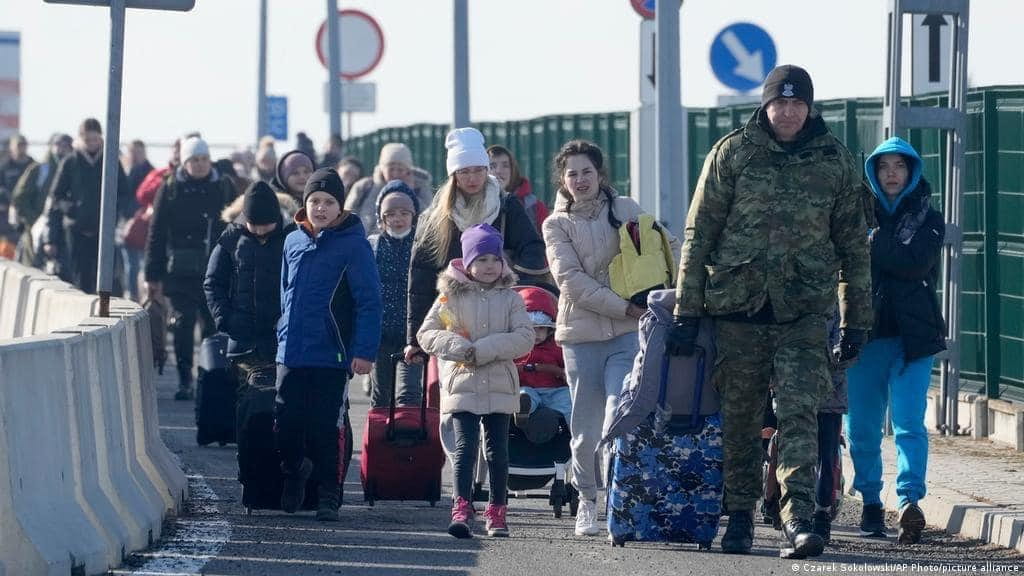Russia launched a military operation in Ukraine on Feb. 24. As many individuals found themselves caught within a dangerous warzone, Ukrainians were “forced to seek refuge in other countries” according to Secretary of Homeland Security Alejandro N. Mayorkas.
According to recent estimates, around 4 million Ukrainian refugees have fled Ukraine. The U.N. estimates that this is the fastest growing refugee crisis since WWII. To illustrate the gravity of the situation, UNICEF has estimated that every second a Ukrainian child becomes a refugee. Most of these women and children take the dangerous journey alone, facing many challenges ranging from big crowds to service halts. Since the Ukrainian government requires men between the ages of 18 to 60 to fight the Russian invasion, it is mainly women and children who are seeking refuge in other countries. The children face unique dangers, including separation from their families and exposure to traffickers, creating an “an acute child protection crisis.” This is one of the biggest humanitarian crises in recent times, with refugees lacking enough food, supplies, or shelter.
Many of the refugees are fleeing to near-by countries, the most common being Poland, Romania, and Moldova. Yet only a minority of Ukrainian refugees choose to come to the U.S. This has been attributed to the controversy and ethical dilemma resulting from the U.S. government’s preferred treatment of Europeans over refugees from other continents like Africa and the Middle East. However, the U.S. still recognizes the exigency of the situation for Ukrainian refugees, and the administration is focusing on ways to help the refugees. Resources suggest that the Biden administration and other U.S. officials are trying to find ways to facilitate and expedite the entry of these Ukrainian refugees. It is a challenging and exacting task because it requires that there is proper authentication and clearance of personal documentation. These policies have yet to be announced and finalized.
For those Ukrainians who have recently tried to immigrate to the U.S. but have faced technical difficulties and formality issues during the application process, the U.S. Citizenship and Immigration Services is offering help. USCIS are stretching previous policies and making special accommodations for Ukrainians due to the “extreme situation.” Efforts to assist include a list of different ways that they are helping, including providing flexibility in rescheduling missed interviews with USCIS, as well as opportunities to reschedule biometric service appointments.
As the U.S. has yet to realize specific policies to directly assist Ukrainians fleeing the war, it has been focusing primarily on helping other European countries who are welcoming and assisting the Ukrainian refugees, as explained by the Secretary of State Antony J. Blinken. This is a good initiative in helping European countries accept more refugees, but leaves the question as to whether the U.S. will be willing to take in and accept these individuals in their own country as well.
Furthermore, there have been newly implemented policies that assist Ukrainians currently living in the U.S. This is referred to as Temporary Protected Status, an extension that allows them to remain in the country for 18 months. These are emergency measures to aid individuals who cannot safely return home. As stated by Homeland Security, “A country may be designated for TPS when conditions in the country fall into one or more of the three statutory bases for designation: ongoing armed conflict, environmental disasters, or extraordinary and temporary conditions.” Moreover, the U.S. is offering pro bono counsel to help undocumented Ukrainians receive Temporary Protected Status. While these steps offer support for Ukraine citizens living in the United States, and those who are seeking refuge in European countries, there is still more to be done by the U.S. to provide aid.
The U.S. has provided financial aid to help Ukrainian refugees, but there is still significantly more to be done. While Ukrainian refugees already living in the U.S. are allowed to remain in the country for a longer period of time, the U.S. should take more initiatives to refugees who remain in the country. This can be achieved by providing more opportunities for ordinary Ukrainian citizens who do not have family or work in the U.S., speeding up the visa application process, or flying the refugees to the U.S. to complete their applications.
Author Biography: Nur Evin Mercan is a Moderator of the International Law Society’s International Law and Policy Brief (ILPB) and a J.D. candidate at The George Washington University Law School. She has a B.S. in Psychology and Neuroscience from Syracuse University.

